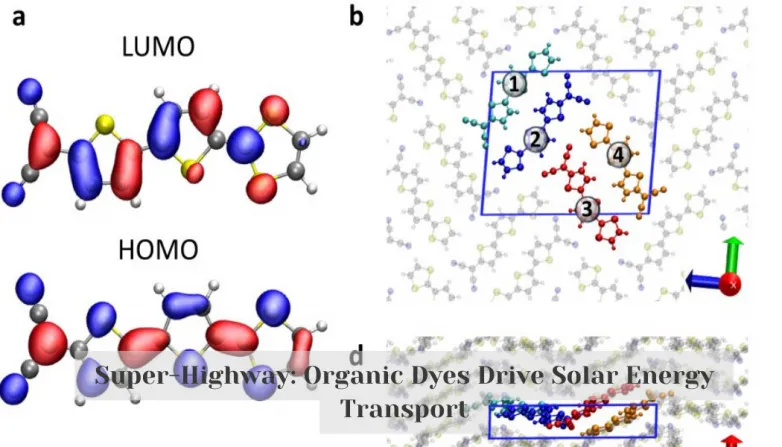Super-Highway: Organic Dyes Drive Solar Energy Transport
- Organic dyes provide virtual highways for energy, leading to light & thin organic solar cells with improved efficiency. TUM research group discovers quinoid merocyanines to increase performance of organic solar cells with fast and targeted exciton transport.

Organic solar cells have great potential for innovative applications due to their light and thin nature. However, they can be inefficient due to a poor transport of energy within the material. A research group at the Technical University of Munich (TUM) has identified organic dyes as having the potential to create virtual highways for energy to increase the performance of organic solar cells. The molecules of the organic dyes, referred to as quinoid merocyanines, absorb visible light and can be used as the active layer in an organic solar cell. Spectroscopic measurements and models conducted by the researchers showed fast and targeted transport of excitons, the fuel of the sun, through the dye molecules. These findings could lead to improved exciton transport in organic solid matter for more efficient organic solar cells and organic light emitting diodes.
How Can Organic Dyes Improve Organic Solar Cells?
- The quinoid merocyanines are organic dye molecules, which absorb visible light and create virtual highways for energy transport.
- This efficient transport of excitons can have a profound effect on increasing the performance of organic solar cells.
- Organic solar cells can be used for innovative applications due to their light and thin nature.
- The research conducted by the Technical University of Munich showed that the quinoid merocyanines have the potential to create a more efficient organic solar cell.
- This improved efficiency could lead to increased efficiency in organic light emitting diodes, as well as other applications.
- By increasing the efficiency of organic solar cells, the potential for more efficient renewable energy sources is increased.
- The research conducted by the Technical University of Munich provides hope for the further development of organic solar cells and other applications.
Also read

